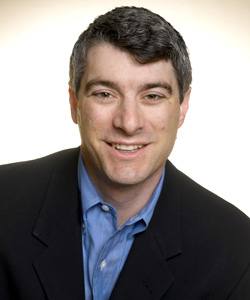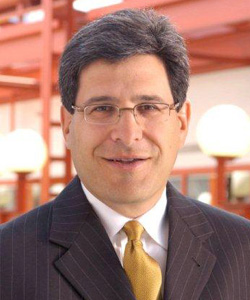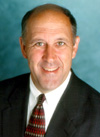
“The dynamic landscape in labor and employment law is always changing,” says Daniel Kaplan, a partner at Foley & Lardner LLP. “Staying up-to-speed is a must in this area of practice. I’ll provide some insight and practical advice on recent changes.”

“This is a dynamic time in health law with profound changes over the past year,” says Michael Bamberger, a shareholder at Beck, Chaet, Bamberger & Polsky S.C. in Milwaukee. “And while federal law, regulations, and cases seem to dominate the landscape, I will cover important developments under Wisconsin law, too.”
July 18, 2012 – Health care law has captured the headlines lately, but far-reaching court decisions and legislative activity are significantly impacting, or have the potential to impact, labor and employment law too, according to Madison attorney Daniel Kaplan.
Kaplan, a labor and employment attorney, is a featured speaker at State Bar of Wisconsin PINNACLE’s® upcoming Health, Labor, and Employment Law Institute, Aug. 23-24 (Thursday-Friday), at the Wilderness Hotel & Golf Resort in Wisconsin Dells.
Kaplan says now is a good time for labor and employment lawyers to catch up, especially since federal claims of employment discrimination are at an all-time high and new laws and regulations at both the state and federal level will impact how lawyers counsel clients.
“The dynamic landscape in labor and employment law is always changing,” says Kaplan, a partner in Foley & Lardner LLP’s labor and employment practice group. “Staying up-to-speed is a must in this area of practice. I’ll provide some insight and practical advice on recent changes.”
In his presentation, Kaplan will team up with Milwaukee health care lawyer Michael Bamberger to discuss how significant cases and legislation will affect those practice areas of law.
Labor and Employment Legislation and Cases
Kaplan says lawyers should note the federal Paycheck Fairness Act, concerning equal pay for men and women, and the Employee Free Choice Act, which would ease the union certification process. Neither bills passed in Congress's last session, but revised versions could in the next session.
“I’ll talk about what occurred in the last 18 months, but also consider what is potentially coming down the pike so lawyers can prepare themselves for that,” Kaplan says.
Kaplan will also discuss significant U.S. Supreme Court decisions, such as Wal-Mart Stores, Inc. v. Dukes, 131 S. Ct. 2541 (2011). In that case, three female workers sought class certification on behalf of 1.5 million female Wal-Mart employees, alleging a common discriminatory practice.
But the high court ruled the claimants lacked the commonality required for class certification.
Kaplan notes the Dukes decision lowers the risk of expansive discrimination lawsuits against employers for now, but lawmakers have introduced a bill – the Equal Employment Opportunity Restoration Act – that would reverse Dukes and liberalize class discrimination claims.
“If the bill passes, employers can expect more claims of discrimination that rely on inferences from statistics, and not specific employment practices,” Kaplan notes.
Wisconsin’s contentious Budget Repair Bill, which largely eliminated collective bargaining rights for public workers, and the Wisconsin Fair Employment Act, which restricts an employee’s ability to obtain damages in state court, is also on the discussion schedule.
Former Gov. Doyle to Speak on the U.S. Supreme Court’s Recent Health Care Law Decision

Former Gov. Jim Doyle, whose law practice includes health care regulatory issues, is a featured speaker at the State Bar of Wisconsin PINNACLE’s upcoming Health, Labor & Employment Law Institute.
At the Aug. 23 luncheon, Gov. Doyle will discuss the politics of health care reform, considering the recent U.S. Supreme Court’s health care decision and the upcoming November elections.
Institute Info
Where: Wilderness Hotel and Golf Resort, Wisconsin Dells
When: Aug. 23-24, 2012
Don’t Miss the Early-bird Discount
Cost: $289, $309 (with luncheon) for State Bar of Wisconsin members if registering before Aug. 13, a savings of $40.
Health Law Legislation and Cases
The U.S. Supreme Court recently upheld the Patient Protection and Affordable Care Act, including a mandate requiring individuals to purchase health insurance or face a penalty.
The impact of that decision is on the forefront of several health law programs at the August Institute, including Michael Bamberger’s health legislation and case law update.
In his co-presentation with Kaplan, Bamberger will discuss health care reform, including the decision in National Federation of Independent Business et al. v. Sebelius. He’ll also discuss changes to Medicare, peer review, Stark law, fraud, and informed consent, among other topics.
“This is a dynamic time in health law with profound changes over the past year, changes that touch virtually every element of health law,” says Bamberger, a shareholder at Beck, Chaet, Bamberger & Polsky S.C. in Milwaukee. “And while federal law, regulations, and cases seem to dominate the landscape, I will cover important developments under Wisconsin law, too.”
For instance, Bamberger will explain the significance of a recent Wisconsin Supreme Court case, Covenant Healthcare Sys. Inc. v. City of Wauwatosa, in which the court ruled in favor a health care provider seeking a property tax exemption for a free-standing outpatient clinic.
Institute Information and Speakers
The Health, Labor, and Employment Law Institute is a two-day event, Aug. 23-24, at the Wilderness Hotel & Golf Resort in Wisconsin Dells. Speakers and presenters – most of them Wisconsin lawyers practicing in health, labor, and employment law – will help other lawyers gain knowledge in these areas. Attendees can earn up to 11.0 CLE credits.
For a schedule and a full list of speakers, topics, and events, or to register, visit the Institute’s webpage. Early-bird registration, with a savings of $40, ends Aug. 13.
What are Institutes?
In 2011, State Bar of Wisconsin PINNACLE began producing several multi-day continuing legal education (CLE) institutes. The institutes enrich the learning and networking opportunities of attorneys in the same or related practice areas by delivering more in-depth programming to members in designated practice areas.
